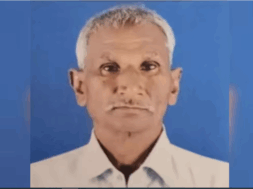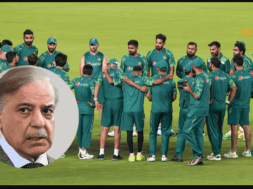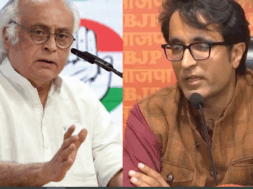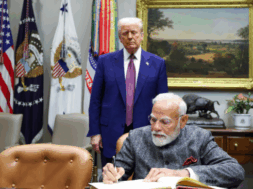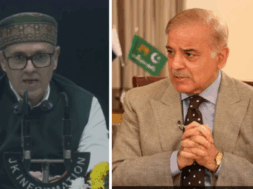
Manas Dasgupta
NEW DELHI, May 31: Playing one up on the centre, the West Bengal chief minister Mamata Banerjee made her chief secretary Alapan Bandyopadhyay to retire as per the originally scheduled date on Monday and was promptly appointed as her chief adviser.
On a day of fast changing scenarios amidst tussle with the centre, Bandyopadhyay, who was under transfer order to Delhi for a short stint of deputation with the union government, stayed put in Kolkata and continued to serve the state government.
Hours after Banerjee wrote to Prime Minister Narendra Modi requesting him to withdraw the recall order and was reportedly told that the centre was not prepared to reconsider the decision, she announced in Kolkata that Bandyopadhyay had retired as the chief secretary and would now serve as the chief adviser to her government for three years.
Bandyopadhyay was originally due to retire on Monday but the centre had granted him three months extension at the request of the state government on May 24 in view of the prevailing pandemic and the relief and rehabilitation work being carried out for the “Yaas” cyclone-hit people of West Bengal.
However, after the ugly confrontation between the chief minister against the prime minister during which Banerjee skipped a review meeting with Modi after his visit to the cyclone-hit areas in the state, during which the chief secretary had also left with Banerjee after handing over the state’s memorandum to the prime minister, the union department of personnel and training issued him the transfer order to Delhi to serve in the union government.
Banerjee, however, did not grant him release order and did not allow him to leave and at the time when under the transfer order he was supposed to be reporting in Delhi at 10 A.M. on Monday, Bandyopadhyay was attending state government meetings in Kolkata.
Banerjee had told the centre on Monday morning that she would not send Bandyopadhyay to Delhi, making it clear that she would not follow the diktat of the centre in the middle of her state’s Covid fight. The Centre, she said, responded by insisting that he has to report to Delhi.
After Bandyopadhyay’s retirement, HK Dwivedi has taken over as Chief Secretary, she announced.
“They have given no reason. I am shocked. I have decided we need his service for the Covid pandemic. For Covid and for Cyclone Yaas, he must continue his service to the poor, the state, the country, the affected people…” the Chief Minister said.
“If a bureaucrat is insulted after he has dedicated his life to his work, what message is the government and PM sending out? Are they bonded labourers? There are many Bengali cadre officers at the Centre. Can I recall them without consultation, Mr Prime Minister? Mr Busy Prime Minister? Mr Mann-ki-baat Prime Minister?” Banerjee wrote.
She met with the Prime Minister briefly after his helicopter landed at the Kalaikunda air base in Bengal and left for another meeting. Top central government sources called her “petulant” and said “never before in the history of the Indian Republic has a Chief Minister of a state behaved in such an ugly, disrespectful and arrogant manner” with a Prime Minister. She, however, had refuted the allegations claiming that she had taken the prime minister’s “permission” for skipping the review meeting as she had other prior engagements lined up before Modi decided to make an aerial survey of the affected areas. Banerjee had also taken strong objections to the prime minister’s office having issued invitations to some BJP leaders to attend the review meeting.
In a five-page letter she wrote on Monday morning, Banerjee told the prime minister that the “government of Bengal cannot release, and is not releasing, its Chief Secretary at this critical hour, on the basis of our understanding that the earlier order of extension, issued after lawful consultation in accordance with applicable laws, remains operational and valid.”
She added: “I am sure you will not inflict further suffering on the people of this state by taking away the services of an experienced officer, suddenly without any consultation and with no prior notice, whose continued presence in my state in these difficult times was accepted to be vital and necessary by your government four days back.”
Bandyopadhyay retired from the services not accepting the extension offered to him after information that the centre was not prepared to accept Banerjee’s request and withdraw the transfer order and instead of mulling taking disciplinary action for not responding to the transfer order.
Banerjee in her letter refusing to release the chief secretary said, “The government of West Bengal cannot release, and is not releasing, its Chief Secretary at this critical hour on the basis of our understanding that the earlier order of extension, issued after lawful consultation in accordance with applicable laws, remains operational and valid. The latest order is also clearly in violation of applicable laws and against public interest: it is in any case ab initio void.,
“I thus humbly appeal to your conscience and good sense, on the behalf of people of West Bengal, and request you to rescind the latest order,” she added.
“I really and sincerely hope that this latest order is not related to my meeting with you at Kalaikunda. If that be the reason, it would be sad, unfortunate and would amount to sacrificing public interest at the altar of misplaced priorities,” she wrote referring to the incident where she skipped the review meeting chaired by the Prime Minister. Bandyopadhyay had accompanied the Chief Minister.
Even if Bandyopadhyay did not retire, Banerjee, according to experts, Banerjee, was within her right to refuse to release an officer citing emergency reasons. The legal experts pointed out that if a bureaucrat was posted with a state government, in order to act on a central deputation or take any action on it, he has to seek permission from the state government.
In such a situation, the state government can refuse to follow orders from the central government. The state government can also refuse to release an officer posted in the state even if the Centre issues summons.
In case of Bengal Chief Secretary Alapan Bandyopadhyay, the Mamata Banerjee government has not released him to act on the central deputation in which he was asked to report in Delhi at 10 am on Monday.
In the last such altercation, the Centre had summoned three IPS officers posted in Bengal over the attack on BJP president JP Nadda’s convoy during campaigning in the just-concluded state Assembly elections. But the Banerjee-led government rejected the Centre’s order and refused to release the officers so far.
In her letter to the prime minister, Banerjee said she was shocked by the Centre’s decision to transfer the chief secretary and termed the order as “unilateral”, which was issued “without any prior consultation” with the state government.
“This so-called unilateral order is an unreasoned volte face and by your own admission, against the interests of the state and its people. “I humbly request you to withdraw, recall, reconsider your decision and rescind the latest so-called order in larger public interest. I appeal to your conscience and good sense, on the behalf of the people of West Bengal,” Banerjee said.
Staging a battle against the Union government over a bureaucrat is not new for the CM, and also not without a reason, say Trinamool leaders.
In 2019 February, Banerjee organised a sit-in demonstration after CBI officers went to Kolkata police commissioner Rajeev Kumar’s residence to interrogate him in Saradha chit fund case. Banerjee backed Kumar to the hilt and even reinstated him after she swept the recently concluded assembly polls in Bengal.
During her 10 years as the CM, she had often refused to send IAS or IPS officers on deputation, citing shortage of civil servants in her state. On one occasion, Banerjee even furnished data to show several posts for civil servants lying vacant and wanted the Centre not to call bureaucrats for central postings.
But the two incidents—over Rajeev Kumar and Alapan Bandyopadhyay—underline Banerjee’s staunch support for key bureaucrats (both are considered professionally very close to the CM) as well as trying to assert her authority on all matters related to Bengal.
Saugata Ray, former UPA minister and Trinamool MP, said, “The CM must have control over the administration. Otherwise, how would she run the government? Her decision to defy the Centre’s directive in the case of Alapan shows that she wants to run the state with political as well as administrative authority.”
Trinamool Congress leaders maintain that Mamata wants to turn this into an issue of federalism and an avenue of attack against Modi. “Rajeev Kumar and Alapan Bandyopadhyay’s cases are completely different. Rajeev was facing charges. But Banerjee stood for both of them. This is her way to assert her position,” said a leader.
Banerjee has also made Bandyopadhyay’s transfer row into a political battle, an area where she is more comfortable to take on the mighty Centre. At a press conference, she attacked the NDA brass for taking revenge for the loss in West Bengal polls and even wondered if Bandyopadhyay is being harassed for being a Bengali.
Bandyopadhyay found himself in the centre of a political storm after the BJP alleged that Banerjee deliberately kept the PM waiting and later didn’t attend a review meeting chaired by Modi in Bengal. Banerjee rejected the allegations and said she wanted to meet the PM exclusively, but no time was allotted. After the Centre recalled Bandyopadhyay and asked him to report to Department of Personnel and Training, Banerjee backed him and refused to adhere to Centre’s directive.

